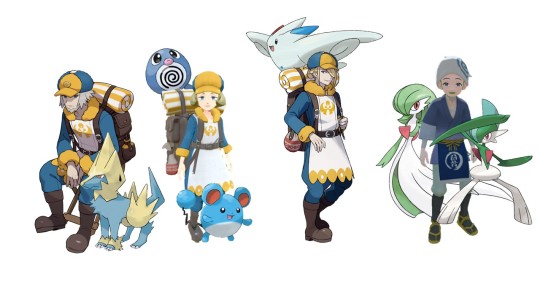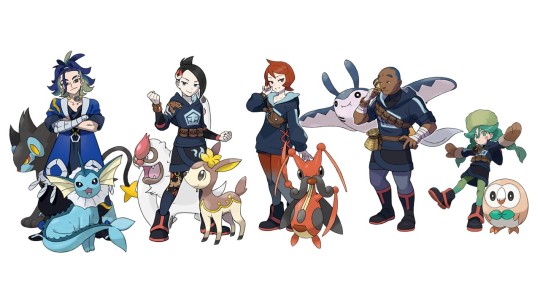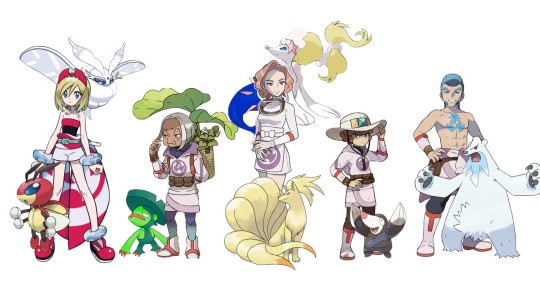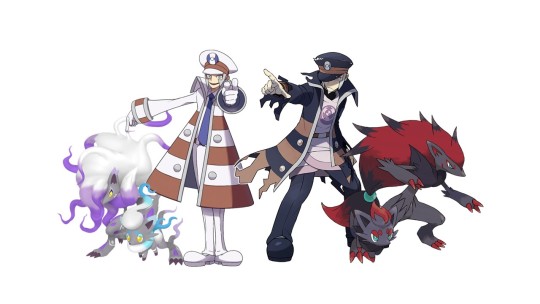#it's... perhaps patronizing isn't the perfect word for it but something akin to it
Explore tagged Tumblr posts
Text
Average fma fan talking about 03 positively: Man, it's such a miracle that the 2003 anime is written even halfway decently! After all, the writers who, as we know, have never written anything in their lives before [citation needed], they had to work while locked in individual underground cells [citation needed], only fed scraps of fma lore by Arakawa herself [citation needed] while her story was actually fully formed by the first printing of her manga in Monthly Shonen Gangan [citation needed] but they were adapting the initial first volume of manga and oopsy-daisy shot past it [citation needed], so they made up every plot beat, character arc, storyboard, and lore change completely on the fly and very randomly [citation needed]. Even though they tried to 1:1 adapt her story [citation needed, contradicted by existing sources], they fumbled the job and butchered her story, characters, and lore. Arakawa sagely forgave them [citation needed]. But somehow it's a cohesive story?! Wow! Even though the story is sad, dark, scares me, makes me cry, violent, gorey, and my fave ships aren't endgame, so -50 demerits. Still, good job team! A treat! A treat for the monkeys working the typewriters at Studio Bones circa 2002-2004! #fullmetal alchemist brotherhood
#something about the way fma fans talk about the writers and animators for the show... I don't like it one bit#it's... perhaps patronizing isn't the perfect word for it but something akin to it#like they're talking down to a gaggle of untrained school children who made their first animated short ever#instead of skilled professionals who actually put time and thought to the story#and weren't just making shit up on the fly per episode#all while acting like 1) the manga was even remotely complete by that point (there was only one tankoban when 03 was given the green light)#2) as if we don't have direct statements from Arakawa and Studio Bones that she provided some materials to them while requesting they creat#their own unique adaptation rather than following the manga#and 3) as if the team didn't plot out their own story & themes that they wanted to explore long before the first batch of episodes aired#(a lot of it is ignorance regarding the production process of animated media)#vent#fma 03
69 notes
·
View notes
Text
Referencing this Au idea here:
Basic idea is that almost everyone in Hisui is a hybrid, except the settlers, causing distrust and fear when the two groups interact.
Hybrid traits lean towards animal-derived Egg Groups such as Field/Monster/Humanoid/Bird etc, but non-traditional Hybrids are possible. Most people with Humanoid Egg Group traits may not even notice they are Hybrids.
Members of both clans are more likely to present with multiple different species traits due to generations of adaptation.
Wardens are preferably chosen not only by skill, but by whether they have a complementary typing to their patron Noble.
Evolution is a much more gradual process, akin to a new life stage.
Legendary Hybrids are exactly that. Legends. The Two Brothers from Unovan lore for example, are believed to be Hybrids of Reshiram and Zekrom respectively.
Mixed Hybrids are possible, but it leans towards the maternal line (just like how breeding pokemon in-game will almost always have the Egg take the species of the mother). Paternal lineage still affects colouration, physical traits, and movesets, however.
I will share my ideas/hcs for whom is Hybridized with what:
Jubilife Village/Galaxy Corps:

Akari is an Oshawott. I saw a cute fanart of her as a Dewott and I thought; "Yes, she is a confused little water baby." Not used to her new features, or shapeshifting. Gets distracted trying to find "a perfect" seashell/stone for her next stage of evolution. She could also be a Piplup to tie her back to Dawn.
Rei is a Cyndaquil. The colour scheme matches him very well, and I love the imagery of him smoking/flaring up whenever he's embarrassed or angry. He'd also have troubles with identity because of unsavoury legends about his evolutionary line.
Laventon isn't a born hybrid, but he develops traits of a pokemon after spending so much time close to the rifts. I kinda see him being a Dragon-type like the Goodra-line, or a Pokemon specific to Galar like Wooloo (plus it matches his wooly hat).
Cyllene is a hard one. Her connection to Abra makes me think something complementary to Psychic types. Zizu has a line hinting at Cyllene being a master swordswoman + being originally from Hoenn - so perhaps an elegant Fighting Pokemon like Mienshao. She may also be a Golbat/Crobat - the sharp but versatile bat pokemon being the signature mon of Team Galactic's final leader.
Kamado doesn't like Hybrids. He's suspicious of them. He fails to notice he's turning part Hariyama/Machamp.

Zizu is a Blaziken, hands down. Fire/Fighting type, Tall, fluffy deep red hair and feathers, and a mother hen to her students. Tho her hair do be looking like a Lopunny, so maybe a fiery rabbit like Cinderace?
Pesselle is an Audino - a healing pokemon more well known in Unova. Her hair looks like the feelers.
Tao Hua's grumpiness and flowery name makes me think of a curmudgeonly Torterra. Extremely resourceful but stubborn.
Sanqua is associated with Gen 2's Karen, so she's def a dark-type. Seeing how her quests involve checking in on disturbances around the village, she could be adapted into Absol.
Colza is def connected to Gardenia, and he simply can't not be a Grass type - he is a Sunflora of a man.
Ginkgo Guild/Vendors:

Ginter is a Manectric. Having a unknown connection to Voltner, and being the leader of a "pack" of traders, it only made sense to make him an electric wolf. His hair has a similar spike too.
Tuli isn't a very complex character; her name is a pun on the Japanese word for the rainy season (tsuiri) so I think or pokemon that naturally learn rain-making moves like Poliwag or Marill.
Volo is a Togetic - angelic in appearance and ability. Slowly evolves into a Togekiss as the storyline progresses. Yes, his hybrid form makes him feel very important.
Beni is a Gardevoir/Gallade. Former ninja or not, he embodies the loyalty associated with the lineage. Also it further connects him to his suspected descendant Wally. Probably noticed his mutation early on, but kept it a secret from Kamado. His new ability to create minor wormholes becomes very useful.
Diamond Clan:

Adaman is very attached to his Eeveelutions, so I see him being a Vaporeon. Time is liquid after all. Colour theme also looks a bit like the Shinx/Luxio/Luxray line.
Mai was raised alongside Munchlax as her brother, so I thought it would be interesting if she was similar themed pokemon like the active Vigoroth (also similar cowlick hair). With Wyrdeer as her Noble however, she could have traits of a smaller deer pokemon like Deerling.
Arezu was the hardest of the Diamonds to decide upon; as I wanted to connect her pokemon half to her love of fashion/hairstyling. But after seeing a Professor Oak lecture where a furious Krictune gaclve him a mohawk - it clicked. Arezu can make violin-like sounds with her forearms to accompany the Noble Lilligant's dancing.
Iscan is def a water type or beach-related pokemon. His colour scheme reminds me of Mantine. His fear of Ghost types made me wonder if he'd have a typing weak/null to it like a Jellicent, but I just love the imagery of him letting little pokemon and clan members ride on his back. and teaching them how to swim and respect the ocean.
Meli is a double Hybrid of the Stunky/Glameow line. The cat pokemon's spiral tail reflects in his hair style, albeit his tail is more like his Skuntank parent. Acts like a furious, spoilt cat whenever his fur or claws are dirtied. Threatens foes with his (existence debated) scent glands. Only conflict between him and Lord Electrode is how he claws up the Noble's tree.
Sabi is a tiny Rowlet chick. The Noble Braviary is pretty much her adoptive dad. Still a fledgling, so her wings aren't strong enough to carry her long distances.
Pearl Clan:

Irida; I initially felt would either be an Eeveelution (Jolteon) or an Ice type, but her clothing reminds me heavily of a bug carapace; like a Ledian or Orbeetle. Or if we keep the Ice typing, perhaps a Snom/Frosmoth.
Lian is just a lil Drilbur. He be digging in the dirt from as early as he can remember. Frequently turns up unusual rocks and fossils - maybe others would like finding them if they had an easier time digging?
Calaba's leaf-umbrella makes me think of the Lotad line with their leaf cap, and her concept art shows her having a colouration similar to the shiny form. The similar unimpressed expression is also a bonus. XD Her Bibarel helps her cross fast rivers now that swimming has become difficult.
Palina makes me conflicted on whether she'd be a gorgeous Ninetails (to better tend to her Noble), or a shiny Primarina (making her a lovely mer-seal). Iscan once saved her while she was in full pokemon-form, and she fell for him ever since.
Gaeric is Beartic. Instead of an icy beard, it's chest hair. It's just his vibe.

Ingo is an Unovan Zorua/Zoroark. Hs dark typing proves verrry useful in keeping back the aggressive Alpha Hisuian Zoroark that roams the mountain - though the other's white markings makes him sad somehow... (Emmet, if he's inthis world, adapts into a Hisuian Zoroark, albeit with shiny colouration).
Unaffiliated:

Cogita's whole vibe screams Gothitelle, but her connection with Enamorus also makes me think of pokemon associated with emotions like Hatterene. Gothielle's ScarVio pokedex entries are pretty spot on with her character though; "Gothitelle unleashes psychic energy and shows opponents dreams of the universe’s end. These dreams are apparently ethereal and beautiful." + "It gazes at the stars to predict the future. It acts somewhat detached because it has seen the end of all existence."
Charm is connected to Agatha/Bertha, and shows a preference for Ground & Ghost types. Her past as a construction Corps member made me think of her being a "strong/sturdy" pokemon expected to perform hard labour; Nidoqueen would fit with her being the eldest of her adoptive sisters.
Clover is based on Candice from DP, so I looked at her team to figure out what Clover would be Hybridized with. Clover's hairstyle combined with her associated team up made me think of Candice's Medicham - and it's shiny form, which is distinctly blue.
Coin is clearly meant to be connected to Saturn, who's main pokemon is a Toxicroak. The color scheme and vibe fits her very well.
Still need a name for this Au...
#pkmn aus#pkmn akari#pkmn rei#professor laventon#captain cyllene#commander kamado#pkmn zizu#pkmn beni#pkmn volo#pearl clan#diamond clan#submas#subway master emmet#subway master ingo#pkmn wardens#clan leader adaman#clan leader irida#warden mai#warden arezu#warden calaba#warden lian#warden palina#wardeb iscan#warden sabi#warden gaeric#pkmn cogita#miss fortune sisters#pokemon#pkmn#pokemon legends arceus
22 notes
·
View notes